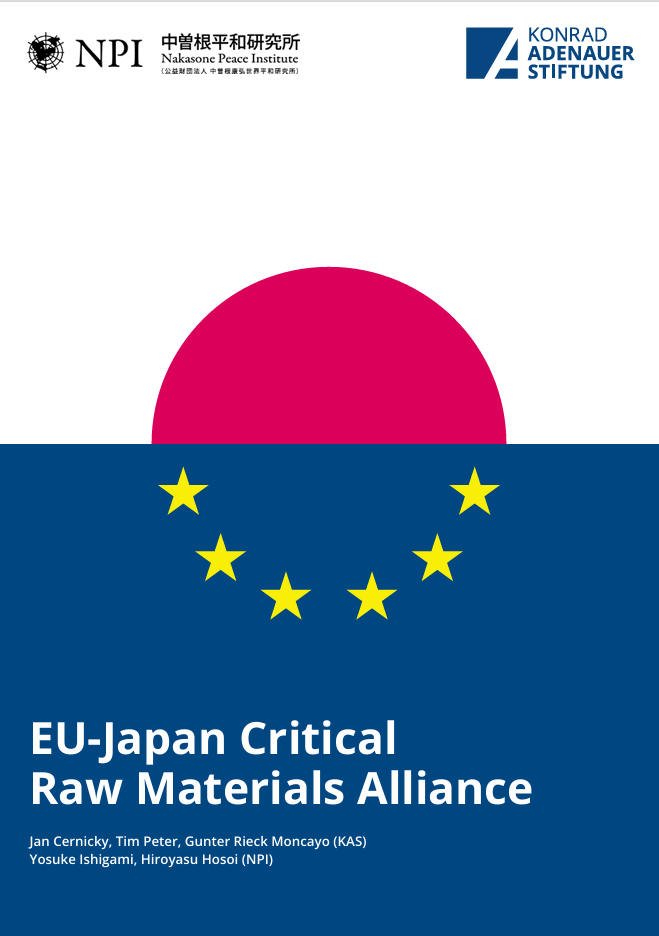2023/07/18
Maritime Security Study Group released "FY2022 Report: Stabilization of the Indo-Pacific Region and Japan's Response to a Crisis".
Introduction
Based on the lessons learned and issues raised through the process from hybrid warfare in the Gray Zone (hereinafter referred to as "GZ") that Russia has conducted against Ukraine since 2021 to the full-scale military invasion that has been underway since then, the study group will make recommendations related to the stabilization of the Indo-Pacific region and Japan's response to a crisis as the subject of the FY2022 study report. The summary of the study and recommendations are as follows.
Section 1: The Course of Russia's Invasion of Ukraine, Lessons Learned, and Issues
In Russia's invasion of Ukraine, President Vladimir Putin's initial goal was probably to support a pro-Russian government in Ukraine through hybrid warfare.His attempt did not succeed because the Ukrainian side was able to take appropriate countermeasures, partly with the support of the United States, the United Kingdom, and other countries that were aware of Russia's moves.
In the course of hybrid warfare, Russia directed a large force to invade Ukraine as a means of intimidation, but the strategy did not work out as Russia had hoped, and Russia went directly into a full-scale military operation.Countries attempting to change the status quo by force will draw a lesson from this case to seek to win hybrid warfare involving military intimidation by increasingly sophisticated means and, if hybrid warfare fails, to move to full-scale military operations and win quickly.In order for Japan to properly deal with such attempts to change the status quo by force in the future, the following three points are important.
①Appropriate response to hybrid warfare.
②A strong, united signal from the international community that "threat of force" will not be tolerated.
③Strengthening cross-domain operational capabilities in full-scale military operations.
Section 2: The Changing Security Environment and Possible Crises to Prepare for In and Around Japan
While China seeks more sophisticated hybrid warfare, North Korea remains adventurous, and Russia seeks to exert its influence as a nuclear power. In this security environment, possible crises that Japan must prepare for in and around Japan are a "Taiwan crisis," a "Korean Peninsula crisis," and a "Senkaku Islands crisis."
Section 3: Analysis of Possible Crises In and Around Japan
The three possible crises of a Taiwan crisis, a Korean Peninsula crisis, and a Senkaku Islands crisis will be analyzed from a military perspective.
Analysis of a Taiwan crisis
First, it is important to make the Japanese public understand the strategic importance of Taiwan. In addition, the U.S. response to a Taiwan crisis can be divided into "hybrid warfare support to Taiwan," "indirect military support to Taiwan phase," and "U.S. military intervention phase," whereas from Japan's perspective, Japan's response can be divided into hybrid warfare, a Situation that Will Have an Important Influence on Japan's Peace and Security, and a Survival-Threatening Situation (Armed Attack Situation). Therefore, it is necessary to resolve various issues related to Japan's recognition of each situation, etc., while also taking into consideration the strengthening of Japan-U.S. cooperation regarding deterrence measures that are flexibly selected.
Analysis of a Korean Peninsula crisis
It is necessary to promptly recognize a Situation that Will Have an Important Influence on Japan's Peace and Security in the event of an attack on the U.S. or South Korea, maintain ballistic missile interception and counterattack capability, establish a decision-making process for prompt and appropriate counterattack, and develop shelters and other facilities to protect the public from ballistic missile attacks.
Analysis of a Senkaku Islands crisis
It is important that Japan and the U.S. share information even before a GZ situation so that the two countries can respond to China's hybrid warfare. It is also necessary to establish procedures for responding to a GZ situation, particularly at the law enforcement level between the Japan Coast Guard (JCG) and Japan Maritime Self-Defense Force (JMSDF).
Section 4: Stabilization of the Indo-Pacific Region and Japan's Response to a Crisis (Recommendations)
The study group recommends the following nine items:
Strengthening multilayered cooperation in the Indo-Pacific region and Japan's involvement
The U.S. alliance in the region is moving from a "hub and spoke" relationship to a network. Japan should take the initiative to respond to the increasingly complex and unstable trends in the region and work to strengthen alliance relations, while at the same time becoming more actively involved in building multilayered partnerships.Therefore, it is extremely important to deepen cooperation in the development of the Quad, involvement in AUKUS, mutual security coordination between Japan and Taiwan, as well as joint training and intelligence sharing by Japan, the United States, and South Korea.
From the perspective of deepening the Japan-U.S. Alliance
For the defense of Taiwan and South Korea, support for U.S. military action should be addressed in a realistic manner. Furthermore, in order to effectively deal with a security environment in which all means, military and non-military, are interrelated, in addition to the current 2+2 framework focusing on diplomacy and military, it is necessary to establish a new coordination mechanism in which Japan and the United States can discuss and coordinate the security of the two countries as a whole-of-government approach.
Japan's countermeasures against hybrid warfare
It is important for Japan to strengthen its own ability to respond to hybrid warfare, especially to ensure that the Japan-U.S. partnership and the Japan-South Korea partnership are not disrupted. Specific recommendations are as follows.
- Since there is a wide variety of hybrid methods and new methods will emerge, it is necessary for Japan to establish a center modeled after the European Centre of Excellence for Countering Hybrid Threats and set up a system to analyze and evaluate hybrid threats in the region in cooperation with neighboring countries and others.
- In order to deal with attacks using disinformation, etc., it is necessary to take systematic measures such as promptly establishing a countermeasures department within the National Security Secretariat to enable the timely dissemination of information domestically and internationally.
- In order to disseminate accurate information to the international community in times of national crisis, it is important to maintain the ability to recover from communication failures caused by cyberattacks or physical destruction and to ensure the continuous transmission of information by being connected to the world's Internet lines.
- In addition to the diplomatic, intelligence, defense, and economic aspects, comprehensive analysis and response from the historical and legal aspects are required to be able to refute the spread of one-sided claims by other countries based on their unilateral view of history to the international community.
- In order to analyze the impact of social networking service (SNS) social media on international public opinion, it is necessary to develop AI-based tools that can organize and analyze social media and other information spaces.
- In order to deal with infiltration of armed forces and sabotage of U.S. military bases and critical infrastructure in Japan by taking advantage of the confusion caused by the Senkaku Islands issue, a Taiwan crisis, a Korean Peninsula crisis, etc., it is important to establish a system in which law enforcement agencies such as the police and JCG work closely with the Japan Self-Defense Forces (JSDF). It is also important to establish a mechanism for cooperation between Japan and the United States on an ongoing basis.
Response to advanced technological fields such as cyber, electromagnetic waves, unmanned air vehicles (UAVs), space, etc.
In order to effectively promote cooperation with allied and like-minded countries in each of these fields, both military and non-military, it is necessary to establish an effective framework for hybrid warfare, including expanding the functions of the National center of Incident readiness and Strategy for Cybersecurity (NISC) and reviewing interagency stove-piped regulations, as well as to establish a system for the promotion of advanced technologies in cyber, electromagnetic waves, unmanned air vehicles (UAVs), space, and other areas with a view to security.
Effectiveness of international norms and Japan's response to threat of force
In the Taiwan Strait and on the Korean Peninsula, there is always the danger that a large-scale threat of force will develop into an armed invasion. It is important to establish a framework to prevent this from happening.
- Strengthen effectiveness of international norms to deter threat of force and establish an international monitoring system
Japan should enhance the effectiveness of international norms that restrain acts that constitute threat of force and establish an international monitoring system that detects and warns of developments that constitute threat at an early stage. It is important for Japan to build a diplomatic framework that can exert effective pressure on a country in question in such a situation and to strongly encourage the U.S. and other countries in the region to work together to develop such framework.
- Japan's response to deter threat of force
In addition to the static deterrence posture of a military power balance, it is important to have a dynamic deterrence posture that prevents threat of force from leading to armed invasion by coordinating diplomatic and military power in critical situations. Specifically, it is necessary to simulate Japan-U.S. joint drills in response to threat situations and to share Japan-U.S. assessments of the situations in response to the intensity of the threat of force.
- Flexible Deterrent Options (FDOs) by Japan and the U.S.
Flexible Deterrent Options (FDOs) through Japan-U.S. joint drills and exercises should be considered for various situations. It should be clarified that FDOs are to be controlled by the government command post to respond to hybrid warfare and to reduce, not heighten, escalation.
Development of a comprehensive defense capability that can respond to cross-domain operations
In order to be able to respond in the event that hybrid warfare develops into a full-scale military invasion, it is important to design the force in terms of how cross-domain operations can be combined with conventional military operations to demonstrate their effectiveness.
- The importance of force design for cross-domain operations
As all domains are interconnected by networks and combinations of sensors, command and control, attacks (destructive and non-destructive means), and other means can be freely selected across equipment and domains, it is becoming increasingly important to objectively evaluate and analyze the capabilities of the opponent and Japan's own forces, including how to fight. Therefore, it is necessary to build a system that enables accurate evaluation and analysis of war potential through the adoption of new analytical methods that actively utilize modeling and simulation.
- Build seamless cyber defense
Cyber defense plays an important role in all situations, from information theft and influence operations in GZ situations to the defense of critical infrastructure and command and communications systems in full-scale military operations. Further coordination between law enforcement and defense is important to respond seamlessly to these situations.
- Response to new forms of combat
The effectiveness of civilian Intelligence, Surveillance and Reconnaissance (ISR), which improves the efficiency of firepower exertion by immediately sharing information obtained by reconnaissance drones, etc. in the cloud, and also utilizing mobile terminal data for military operations have been recognized. New ideas are required for the development of a comprehensive defense capability that can respond to cross-domain operations, including the use of civilian technology.
Response to crisis in surrounding areas
In particular, actions for the defense of Taiwan may involve both participation in combat operations and actions for the defense of Japan, due to combat service logistic support for U.S. forces, etc. Therefore, it is necessary to immediately start considering how Japan-U.S. cooperation should be organized.
- Taiwan contingency: Issues regarding recognition of a Survival-Threatening Situation
The recognition of a Survival-Threatening Situation in the event of a Taiwan contingency has elements that are highly controversial under international and domestic law, and it is anticipated that China's information warfare will develop activities that will impede the Japanese government's rapid response. It is necessary to have a thorough discussion at this point in time to avoid a split in national opinion.
- Taiwan crisis: Response to the simultaneous occurrence of a Survival-Threatening Situation and an Armed Attack Situation
While Japan and the U.S. coordinate overall operations for the defense of the Sakishima Islands and other islands that may be included in a Taiwan contingency battle zone, Japan must take the initiative in dealing with direct combat operations.
- Taiwan crisis: What should be done in a Situation that Will Have an Important Influence on Japan's Peace and Security?
At a stage in a Taiwan crisis recognized as a Situation that Will Have an Important Influence on Japan's Peace and Security, it is necessary to consider whether the various responses should be implemented individually or comprehensively.
- Korean Peninsula crisis: Counterattack on opponent's base in response to ballistic missile attack, etc.
It is necessary to establish procedures in advance and clarify where the counterattack authority lies so that prompt and appropriate decision-making can be made when using force to counterattack an enemy missile launch or initiation of an attack.
- Response to a Senkaku Islands crisis
- A Taiwan crisis could be linked to a threat of ballistic missiles to the Senkaku Islands and the vicinity of Taiwan, or illegal occupation of the Senkaku Islands by China Coast Guard ships, etc., with the aim of deflecting Japan's power away from Taiwan. A strategy that looks at a Taiwan crisis as a whole, without being caught up in individual cases, is required.
- As an isolated incident, a skirmish between a China Coast Guard ship and a JCG vessel, for example, could escalate to a situation in which JCG action must be launched. It is an urgent issue for the Minister of Defense to examine more specifically the joint procedures of the JCG and JMSDF in the control and law enforcement of the JCG in the event of a contingency.
- Response to the South China Sea issue
The establishment of a maritime security intelligence sharing center in the South China Sea is necessary in order to share international intelligence in the South China Sea and to promote intelligence sharing and disclosure among the countries concerned.
From the perspective of further strengthening Japan-U.S. collaboration
- Establishment of a permanent Japan-U.S. joint coordination center
It is desirable to establish a permanent Japan-U.S. joint coordination center to support the Alliance Coordination Mechanism (ACM) so that it can respond flexibly to complex and changing war situations.
- Establishment of a permanent Joint Task Force (JTF) command
It is an urgent issue to establish a permanent Joint Task Force (JTF) command (especially a JTF for southwest area defense, a JTF for counterattack operations including missile defense, and a JTF for cyber response) to be able to respond immediately when a situation arises, and to enhance Japan-U.S. joint operational planning and training.
From the perspective of protecting the public
In order to minimize harm to the public, it is important to take measures to protect the public at an early stage before an Armed Attack Situation or Survival-Threatening Situation occurs and to set up evacuation and guidance points to avoid mixing with combatants.
Conclusion
The study group recognizes that the above recommendations share the same direction as Japan's National Security Strategy and the supporting documents approved by the Cabinet in December 2022. What is required from now on is to deepen the study of each of the proposed policies so that they can be realized. The study group will continue its activities in order to contribute to the deepening of discussion of these policies.








